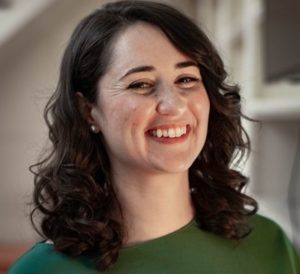SUCCESS STORY OF FITBIT, LIVE YOUR LIFE IN A HEALTHIER WAY
When maintaining a proper diet or leading healthier lifestyle bumps into our way, we often tend to master the postponing game. Do you know why? Somewhere we are not encouraged enough to wake up every morning and have a good workout and wait till it turns into a serious health issue.
There is a minor part of the population who consciously tracks their fitness metrics and follows a healthy lifestyle. Honestly, many of us think that it’s an extravagant lifestyle to keep track of your health records and especially the Indians show minimal efforts henceforth. So, to keep your health records in track in an interesting way and give some push to yourself, Eric Friedman and James Park launched Fitbit in 2007, a company that produces smart wearable devices to track your health. It is interesting how Fitbit rose from just an idea twelve years ago given that it almost hit dead end several times and now competes with business tycoons like Apple and Xiaomi.
James Park
After passing out from University School at Cleveland, Ohio, Park went to Harvard for studying Computer Science but eventually dropped out. He joined Morgan Stanley as a Peon in 1998 and continued for a year. In October 1999, Park co-founded Epesi Technologies, a B2B integration software followed by co-founding Wind-Up Labs in 2002. Park’s life story is something that catches the attention of today’s generation, isn’t it? Dropping out of college and creating such a massive empire for himself.
Park along with Friedman thought of doing something incredible with the small sensors and hence came up with the idea of Fitbit to digitalize even the fitness and health of normal people.
Eric Friedman
Friedman is a Computer Science engineer who completed both his Bachelor’s and Masters from Yale University. After passing out in 2000, Friedman joined Epesi Technologies as a Software Engineer and then co-founded Wind-Up Labs with Park in August 2002. Friedman also worked for Microsoft in his early career and before co-founding Fitbit he worked at CNET Networks and Engineer Manager. Currently, he is serving as the CTO of Fitbit.
The beginning and the Turmoil
Already after founding Wind-Up Labs, both Park and Friedman didn’t have any intention to stop. They wanted to do something unique with small sensors and discovered a huge potential in the sphere of health. If small devices can be made out to track personal fitness data, they thought they might have a really good audience. At first, they created just a small circuit board within a wooden box as a prototype which helped them raise $400,000 and eventually more once they started furnishing their experimental gadgets.
In 9th September 2008, both of them attended the TechCrunch 50 Conference and received 2,000 pre-orders for their product in a single day. They accepted the order and realized later that it was a not-so-good move as they didn’t have a manufacturing unit at all. After a few months of the constant search for an appropriate supplier, the product started showing some flaws. The fate of Fitbit turned upside down and the co-founders thought of giving up. But after the topsy-turvy, they were finally able to launch the fitness tracker in 2009. They shipped around 5,000 units of this tracker and received another 2,000 pre-booking. Since there was no third party in the business, Fitbit made a robust profit out of it.
The Success
In 2011, Fitbit introduced another new tracker much better than the previous one as this one came with an altimeter and many other modifications. At the end of 2014, the company’s annual revenue summed up to $745.4 million and in the next year the company filed for its first IPO and the amount was $358 million. This year turned out to be one of the best for the company as more than 18 million fitness trackers were sold given that no new products were launched in this year.
The company also has a pretty impressive list of acquisitions starting from March 2015. Fitbit acquired Firstar in 5th March 2015 for $17.8 million followed by acquiring Coin, a credit card company in 2016. In 2017, the company acquired a smartwatch based start-up, Vector Watch SRL and in the next year a software company called Twine Health.
The company currently manufactures fitness trackers mainly for heart rate, sleep quality and number of steps. Though the company has faced a few shady plots for revealing too much information about Fitbit’s users to each other through its feature, still the company has managed to stay on the top in terms of wearable technology.

Annasha Dey is an NIT student, who apart from studying engineering is also a content writer. She has a great interest in photography, writing, reading novels, and travelling as well. She is a foodie who loves socializing and hanging out with her friends. She is also a trained Kathak dancer and a big fashion enthusiast. Dey also loves watching TV series, which includes F.R.I.E.N.D.S. and Big Bang Theory. To be a better writer she prefers to read more



